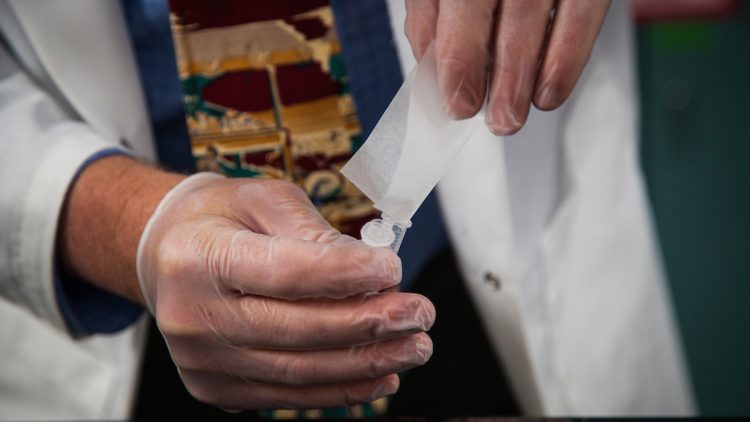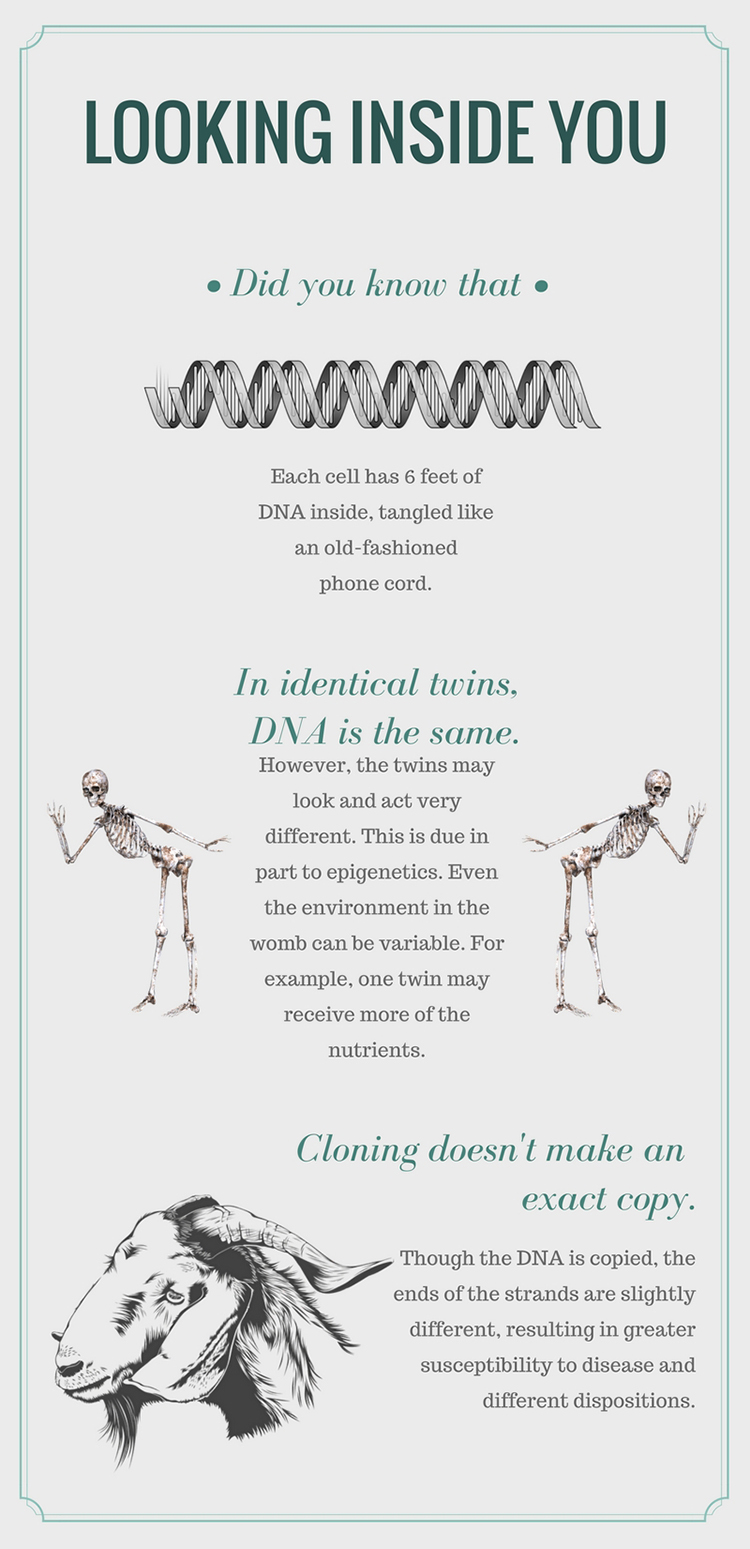Why are you more prone to cancer as you age?
“We’ve discovered that as cells age, they stop dealing with damage as well,” said Dr. Joshua Smith, associate professor of biomedical sciences. “That’s where one mutation can creep up, and it can lead to others that cause cancer.”
In his lab at Missouri State University, Smith studies factors that damage DNA. One example is ultraviolet light.
Through his studies, his research team is learning how UV light damages DNA. They’ve also discovered that DNA passes along genetic memory from mother cell to daughter cell.
He likens DNA to an old twisted phone cord packed tightly into a cell – there are six feet of DNA in each cell. Once the DNA is damaged, it should be untangled and opened up to find the error and fixed.
However, it’s a delicate balance. If you repair a damaged gene and make it resistant to cancer, cancer cells might be able to gain that resistance – making chemotherapeutics and radiation futile.
“If you get exposed to the sun, you want the ability to repair damaged cells, but then the cancer cells are some of the ones that then gain that ability to repair it and then uncontrollably grow,” added Smith.
Why are clones different from the original?
Smith studies genetics and the environmental factors that change how genes express themselves.
These environmental factors, called epigenetics, have been at the forefront of many genetic studies in recent years. It can help to explain why cloned animals are different from the original.
On the outside, the animals may look slightly different. Their dispositions won’t be the same either, he noted.
On the inside, studies show that the ends of the DNA are different. These cloned animals also get cancer and die at younger ages.
“They have made clones of some of the great bulls that are in bull riding, and they don’t turn out anything like the original,” said Smith, who has a background in agriculture. “That’s because not everything is just about your genes. It’s about the environment that those genes are placed in and it can turn on and off things and change that outcome based on your environment.”
Nature vs. nurture
Epigenetics is essentially the part of your life that is determined by environmental factors, Smith noted.
“There are some things that can be explained by your genome, but whether you actually see it or don’t see it is still so unpredictable because of this layer of stuff on top of your DNA – that’s epigenetics,” Smith said.



Leave a Reply